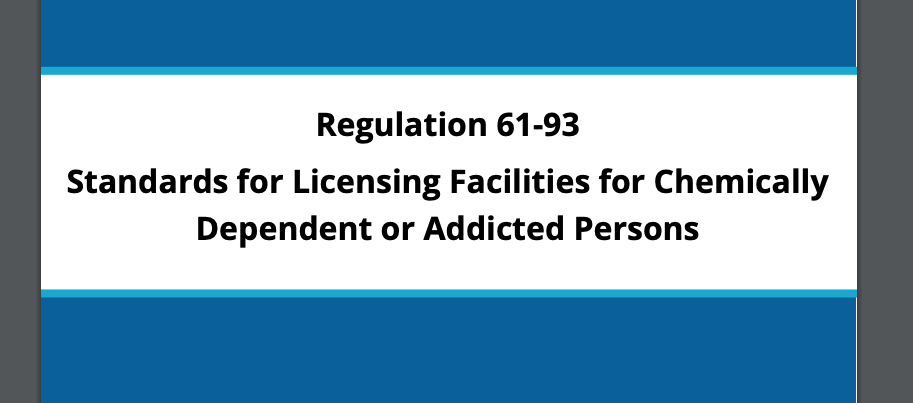If you’re thinking about opening an addiction treatment center or drug rehab in the state of South Carolina, you probably already know that the state ranked 5th in the nation for the highest increases in overdose deaths in 2021. Like many states in the nation, South Carolina is suffering from a proliferation of dangerous synthetic opioids like fentanyl, which contributed to a 52% increase in overdose deaths in South Carolina during the height of the pandemic. Horry County reported the highest number of overall overdoses in South Carolina during the pandemic, according to the South Carolina Department of Health and Environmental Control.
Although the demand for treatment in South Carolina remains high, the state retains its status as a CON (or “Certificate of Need”) state, with strict licensing requirements and a lengthy process for getting licensed as an addiction treatment center in the state. If you have your sights set on South Carolina, be sure to do your research and start the process early so that you can navigate the state regulations confidently.
Without further ado, lets dive into what it takes to open a licensed addiction treatment center in South Carolina.
South Carolina’s Addiction Treatment Centers Are Highly Regulated. You’ll Definitely Need to Get Licensed.
In South Carolina’s Regulation 61-93 Standards for Licensing Facilities for Chemically Dependent or Addicted Persons, you’ll find that the state’s requirements for addiction treatment center licensing aren’t optional.
A. License. No person, private or public organization, political subdivision, or governmental agency shall establish, operate, maintain, represent, advertise, or market itself as a Facility in South Carolina without first obtaining a License from the Department.
South Carolina Refers to Addiction Treatment Centers as “Facilities for Chemically Dependent or Addicted Persons”
When you’re researching state requirements, it’s helpful to know the lingo that each state uses to refer to addiction treatment centers. The phrases differ widely from state to state. In South Carolina, drug rehabs of all stripes are referred to as “facilities for chemically dependent or addicted persons.”
Do Your Due Diligence with Regulation 61-93 Before You Open an Addiction Treatment Center in South Carolina
Regulation 61-93, also referred to as the “Standards for Licensing Facilities for Chemically Dependent or Addicted Persons,” is 67 long pages of highly detailed regulations and requirements established by South Carolina for management of addiction treatment centers in the state.
The wide-ranging regulations cover every detail of facility operations, such as:
Policies and Procedures
Staff and Training
Reporting
Patient Records
Admission
Patient care, treatment and services
Patient Right and Assurances
Medication Management
Meal service
Emergency procedures and disaster preparedness
Fire prevention
Maintenance
Infection control and environment
Quality improvement program
Design and construction
Fire protection and safety
Physical plant
Some details border on the absurd in their specificity. The document details the physical requirements of the building down to the screens on the windows and the specifics of what goes in the (mandatory) janitor’s closet. Pay close attention as you read through this document or pay the price later.
Prepare to Pay Three Different Types of State Fees When You’re Opening an Addiction Treatment Center in South Carolina
South Carolina requires residential and outpatient facilities to pay initial licensing fees, as do most state licensing programs.
However, South Carolina also requires two different inspection fees during the process of building an addiction treatment center from the ground up: plan inspection fees and site inspection fees. If your project cost is higher than $500,000, prepare to pay $2500 plus $100 for each additional $100,000 in project cost just for plan inspections. Finally, your site inspection will set you back $500.
Here’s a table of the construction inspection fees, including the plan inspection fees and site inspection fees for your reference:
South Carolina is a CON State for Addiction Treatment Centers
South Carolina requires a state Certification of Need from all applicants before considering any addiction treatment licensing application. In other words, the state needs to determine that it needs your services before it will bother looking at your application for licensing. According to Article 3: State Certification of Need and Health Facility Licensure Act, South Carolina’s CON requirement is intended to:
“...promote cost containment, prevent unnecessary duplication of health care facilities and services, guide the establishment of health facilities and services which will best serve the public needs and ensure that high quality services in health care facilities are provided in this state.”
You’ll Complete Either an Outpatient or Residential Application for Addiction Treatment Center Licensing in South Carolina
Although many states use one application for all types of addiction treatment centers, South Carolina has one licensing application for outpatient treatment and another licensing application for residential programs. The applications are a fairly standard 7I pages, plus several pieces of “required documentation” like proof of ownership, verification of administrator’s qualifications, verification of emergency evacuation plan, and a check for the total licensing fee.
Let Us Help You Open an Addiction Treatment Center in South Carolina
Behave Health is committed to making it easier - and more profitable - to operate evidence-based, results-focused addiction treatment centers.
Get your free trial started today and see why more addiction treatment centers prefer Behave Health.
Need help with certification? Behave Health can also help direct you to the right resources for help with Licensing or Accreditation by either The Joint Commission or CARF. Mention to your product specialist that you’re interested in this service after you start your free trial!








